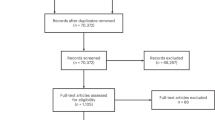Abstract
IN NATURE of September 19, 1918 (vol. cii., p. 53) a summary is given of an article by Prof. P. Chavigny on the food of rats. Some of the statements in this article appear to me to be extraordinary, particularly the alleged necessity for rats to get cooked human food. The hordes of rats which swarm along our foreshores, and in granaries and like places, could not possibly get sufficient cooked human food to keep them alive, yet they are plump and well-fed. Anyone who has kept fowls or ducks in a rat-infested place knows that rats will carry off and devour chicks and ducklings, even dragging them from under the brooding mother, eating them raw. Attacks on living and dead human beings and smaller animals are by no means rare. Along the water-front rats freely catch and cat crabs, and they will devour raw fish with avidity.
This is a preview of subscription content, access via your institution
Access options
Subscribe to this journal
Receive 51 print issues and online access
$199.00 per year
only $3.90 per issue
Buy this article
- Purchase on Springer Link
- Instant access to full article PDF
Prices may be subject to local taxes which are calculated during checkout
Similar content being viewed by others
Author information
Authors and Affiliations
Rights and permissions
About this article
Cite this article
STEEL, T. The Food of Rats. Nature 103, 345–346 (1919). https://doi.org/10.1038/103345a0
Issue Date:
DOI: https://doi.org/10.1038/103345a0
Comments
By submitting a comment you agree to abide by our Terms and Community Guidelines. If you find something abusive or that does not comply with our terms or guidelines please flag it as inappropriate.



